Workshop session with Nikita Roy – Generative AI 101 for Journalists
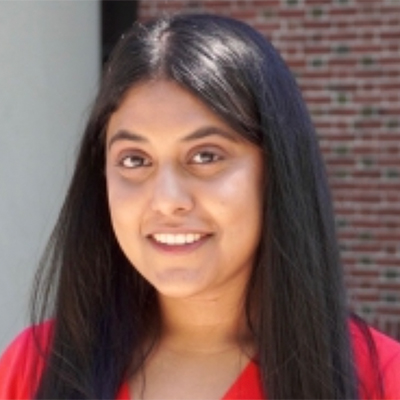
Nikita Roy is a data scientist, journalist, and Harvard-recognized AI futurist. She is currently a Knight Fellow at the International Center for Journalists, focusing on AI literacy in the news industry. Additionally, she leads the AI Journalism Lab at the Craig Newmark Graduate School of Journalism at the City University of New York, which was launched with support from Microsoft.
Nikita is also the host of the globally acclaimed Newsroom Robots podcast, which has ranked among the top technology podcasts in over 30 countries on Apple Podcasts. It is regarded as a “space for the news industry to actively discuss AI.”
Her digital news startup, The NRI Nation, has been incubated at Harvard Innovation Labs, is a two-time semifinalist at the Harvard President’s Innovation Challenge and has received the Harvard Innovation Lab’s Spark Grant.
Nikita has participated in the ICFJ LEAP News Innovation Lab and the LION-Google News Initiative Startups Lab. She was spotlighted as a notable Canadian youth founder and was selected for Canada’s League of Innovators Accelerator in 2022.
As a Generative AI Specialist, she advised on the product development of a cutting-edge generative AI-based ed-tech tool at the University of Toronto.
She’s a frequent speaker and moderator at AI and journalism events. She conducts AI workshops for newsrooms and esteemed institutions, including the The Economist, University of Toronto and Craig Newmark Graduate School of Journalism at the City University of New York. Her insights have been featured on Nieman Lab, Yahoo Finance, and CBC.
Nikita is the President of the Canadian Association of Journalists – National Capital Region chapter.
An alumna of the University of Toronto and Harvard University, Nikita aims to foster the responsible and innovative use of AI in media, conducts workshops, develops AI products, and advises on AI strategy.
Opening keynote: Charlie Beckett
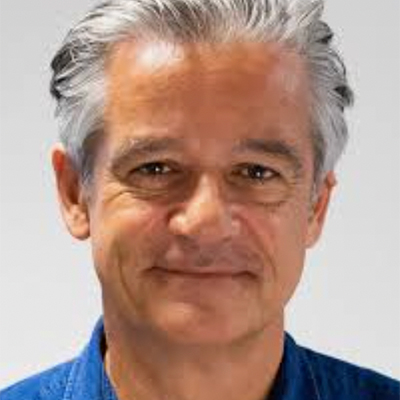
Professor Charlie Beckett is the founding director of Polis, the think-tank for research and debate around international journalism and society in the Department of Media and Communications at LSE. Polis runs events for journalists and the public as well as a programme of fellowships and research. It has a Summer School, holds conferences and publishes reports. Charlie is leading the Polis JournalismAI project and was Lead Commissioner for the LSE Truth, Trust & Technology Commission (T3). As well as being spokesperson for Polis, Media Policy Project and T3, and a regular blogger, Charlie Beckett is a regular commentator on journalism and politics for the UK and International media.
Charlie is the author of SuperMedia: Saving Journalism So It Can Save The World (Blackwell, 2008) and WikiLeaks: News In The Networked Era (Polity, 2012). He also published research on journalism and emotions, journalism and Artificial Intelligence, and reporting on terrorism.
Prior to joining LSE, Charlie was a programme editor at ITN’s Channel 4 News. Before that he was a senior producer and programme editor at BBC News and Current affairs for ten years. He started his career on local newspapers in his native South London before starting in TV at LWT.
Charlie specializes in how journalism around the world is changing and its relationship to society and politics.
Panel: Artificial intelligence in your news organization
Panel chair
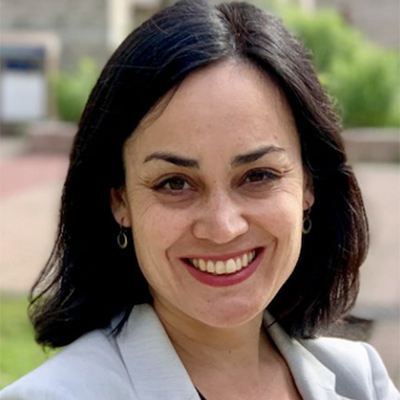
Kate Porter, a veteran Ottawa City Hall reporter for the CBC, joined Carleton University’s School of Journalism and Communication in 2023 to teach courses on audio and video journalism, civic institutions, and the future of journalism in the face of misinformation. Porter’s 20 years at CBC began on Ottawa’s local afternoon radio show while studying journalism at Carleton University. She has anchored radio newscasts, provided live analysis during elections, covered the public inquiry into Ottawa’s light rail system, and produced many multi-platform deep dives about urban issues.
Panelists
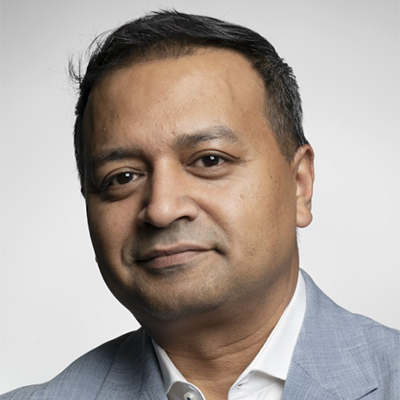
Nafid Ahmed is the Vice President of Enterprise Analytics, Data Science, and Consumer Insights at The Globe and Mail. With over two decades in the media and technology sectors, he is a recognized leader in data-driven digital transformation. In his current role, he synergizes across business functions to establish and implement data platforms, analytics, and AI roadmaps, influencing key organizational decisions and consumer insights.
Prior to joining The Globe, Nafid held various senior roles, including Head of Digital Media and IT Strategist at The Daily Star, the largest circulating English-language newspaper of Bangladesh, and worked with telecom giants such as Nokia and Siemens where he crafted and executed innovative digital and marketing strategies. As a founding member of a high-impact Sophi team, he has been instrumental in the development of data products that utilize machine learning for audience segmentation and targeting.
Nafid initiated his career in the media landscape as a journalist specializing in telecom and technology. This role granted him the unique opportunity to interact with and interview influential tech personalities, including Bill Gates. Holding a Master’s degree in Applied Physics, Electronics, and Communications Engineering from the University of Dhaka, and further education in Digital Business Strategy from Columbia Business School.
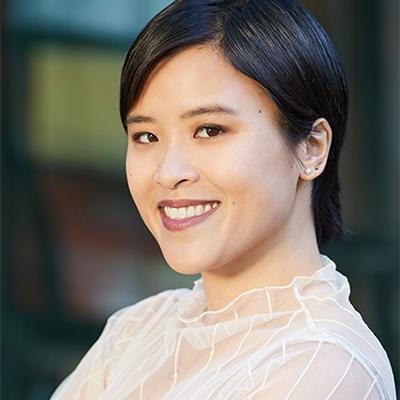
Anita Li is a journalist, news entrepreneur, media consultant and educator. Currently, she is the founder, CEO and editor-in-chief of The Green Line, an award-winning community-driven and solutions-focused news outlet in Toronto.
Anita is the Journalism Innovator-in-Residence at Toronto Metropolitan University (formerly Ryerson University). She previously taught media executives and news entrepreneurs at the City University of New York’s Craig Newmark Graduate School of journalism.
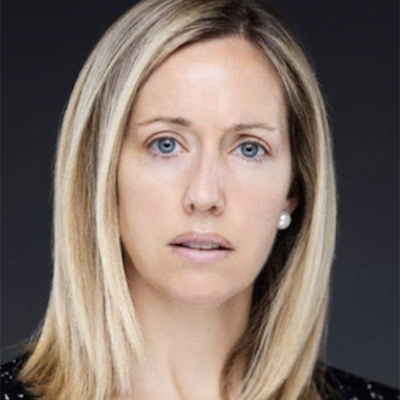
Louise Story is a journalist, technologist, filmmaker and media consultant.
Previously, she was the Chief News Strategist and Chief Product and Technology Officer for The Wall Street Journal, overseeing The Journal’s news coverage strategy as one of the top four editors in the newsroom and also running the full product, design and engineering teams for the WSJ business-wide. She was the lead author of the Journal’s Content Review, the sweeping review of its audience and content that helped the Journal accelerate its growth. Before that, Louise worked at The New York Times for 11 years in a variety of roles including helping to develop The Times’ digital strategy as a co-author of The Innovation Report and running its live video unit.
Throughout her career, Louise has reported on business and finance, and she was a leading reporter on the 2008 financial crisis. Her investigative reporting has uncovered three massive fraud cases that led to record legal settlements, and her work has been part of packages honored with numerous awards including from The Online News Association, Edward R. Murrow awards, Barlett and Steele awards, the Pulitzer Prizes and the Emmys.
She is an expert on the future of the news business (which she consults on); news and artificial intelligence (which she also consults on and led at the WSJ); and on race and money in America (the topic of her forthcoming book from HarperCollins and the subject she teaches on at Yale). More information on her book can be found here: www.15cents.info
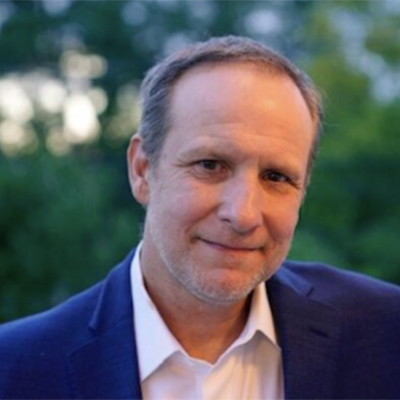
Troy Thibodeaux is the Director of AI Products and Services for The Associated Press, where he leads initiatives to safely bring the benefits of AI to serve AP’s journalism. He has spent his career at the intersection of news and technology – from building interactive election results maps as a newsroom developer to launching AP’s news applications and data journalism teams. Before turning to focus exclusively on AI as part of AP’s Products department in 2024, he helped launch the digital news team at AP, including the first fulltime teams managing newsletters, social media and digital curation. He lives in New Orleans with his wife and twin boys, who all love the local food and music as much as he does.
Panel: AI and journalism ethics/ news organization guidelines
Panel chair

Aneurin Bosley is an associate professor of journalism and undergraduate supervisor at Carleton University’s School of Journalism and Communication. He spent 14 years as an editor at the Toronto Star, much of that time as digital editor, where Aneurin worked extensively with interactive technologies. He’s interested in how these technologies can help journalists find and tell stories. Aneurin has an MJ from Carleton and an MA in philosophy from the University of Ottawa. Before joining the Toronto Star, Aneurin was the editor of The Internet Business Journal and a technology columnist on CBC Radio One in Ottawa.
Panelists
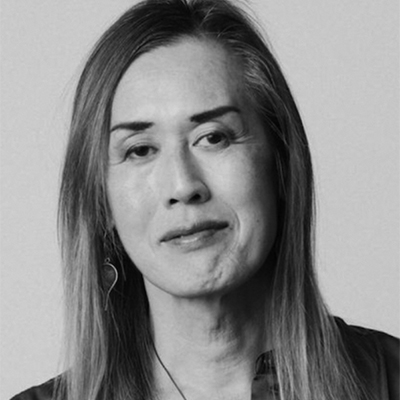
Gina Chua is a Singaporean journalist serving as the executive editor of the media outlet Semafor. She previously served as the executive editor of the Reuters news agency, editor-in-chief of the South China Morning Post and Wall Street Journal Asia. A trans woman, Chua is one of the most senior openly transgender journalists in the U.S. Born in Singapore, Chua attended high school in the Philippines, studied at the University of Chicago, earning a bachelor’s degree in mathematics, and Columbia University, earning a master’s degree in journalism.
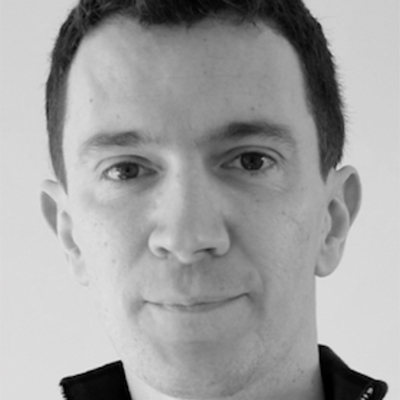
Florent Daudens develops initiatives in open-source AI and journalism at Hugging Face, a platform “where the machine learning community collaborates on models, datasets, and applications.” Previously, he led teams of international, political and daily news journalists at Radio-Canada, after having been the news director at Le Devoir, where we underwent a profound digital transformation. He established teams specialized in video and data visualization, and oversaw the launch of many innovative products (applications, newsletters, electoral coverages…), the development of new coverage areas, and the design of artificial intelligence projects. He teaches digital journalism at the University of Montréal. He has been involved in the development of the journalism profession as a board member of the FPJQ and the magazine Trente, and with groups such as Hacks/Hackers Montréal. He has also worked at La Presse, Rue89, France3, and the Federation of Journalists of Québec.
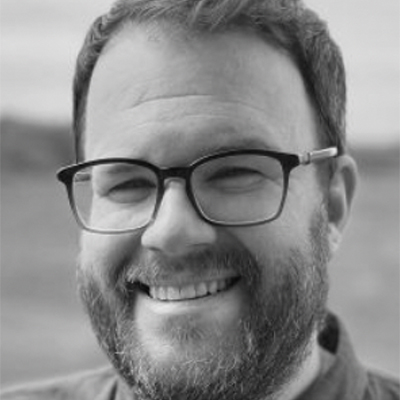
Chris Dinn is the Emmy award-winning founder and publisher of Torontoverse, a Toronto-based digital news startup harnessing cutting-edge technology for local news delivery. He earned his Emmy in Technology and Engineering for his contributions at mDialog, an innovator in integrating live video streams with advertisements, later acquired by Google. At 19, Chris entered the media realm, selling ads for his college newspaper. His zeal for innovation guided him to mDialog, where he was instrumental in reshaping the video ad landscape. Following its acquisition by Google, Chris dedicated six years as a software engineer focusing on publisher ads. In 2022, he launched his publishing venture, torontoverse.com, which combines news with mapping technologies to create a different way of engaging with the news.
Panel: AI and Journalism pedagogy – how to teach this?
Panel chair
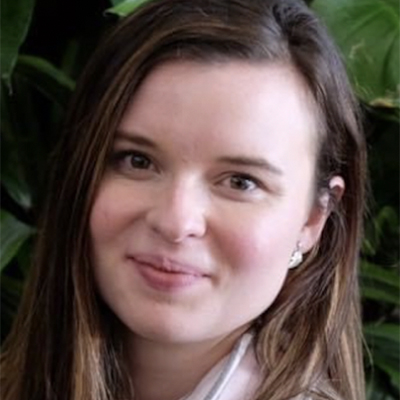
Caroline O’Neill is an instructor in the Media Production and Design program at Carleton University’s School of Journalism and Communication. Caroline is a Canadian Screen Award-winning producer who most recently spent three seasons working on CTV’s flagship daily politics program Power Play. Caroline started her journalism career as a morning show reporter on APTN’s radio station 95.7 ELMNT FM. She’s a graduate of Carleton’s journalism program.
Panelists
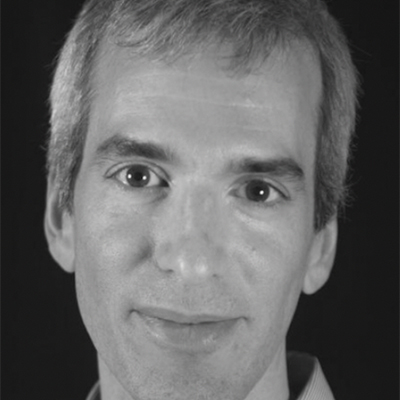
Jeremy Caplan is the Director of Teaching and Learning at the Craig Newmark Graduate School of Journalism at City University of New York. Jeremy also leads CUNY’s new Entrepreneurial Journalism Creators Program, a 100-day online curriculum for independent journalists around the world. Having directed the first global M.A/ and certificate programs in Entrepreneurial Journalism, Jeremy has supported hundreds of journalists around the world in developing their own niche journalism ventures over the past decade.
As a reporter at Time Magazine, he wrote hundreds of stories on subjects ranging from digital innovation to the nuances of low-wage work.
After studying public policy at the Woodrow Wilson School at Princeton University, he earned an M.S. in Journalism as a Knight-Bagehot Fellow at Columbia University and an MBA at Columbia Business School as a Wiegers Fellow.
Jeremy writes Wonder Tools, a newsletter highlighting the most useful digital resources that’s now syndicated through Fast Company. Before becoming an educator and journalist, Jeremy was a violinist, serving as Concertmaster of the International Symphony Orchestra in Israel.
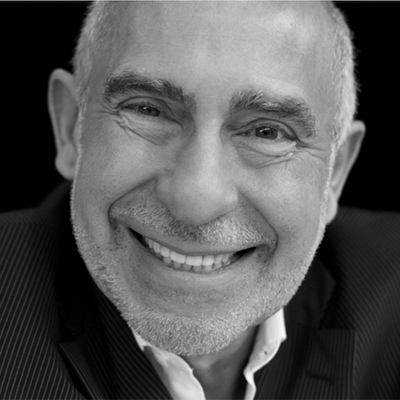
Mario R. Garcia is Senior Adviser on News Design and Adjunct Professor at Columbia. He is also CEO/Founder of Garcia Media, a global consulting firm. He has been involved with the redesign and rethink of more than 700 publications in 120 countries, including The Wall Street Journal and The Washington Post. He came to the School of Journalism as the Hearst Digital Media Professional in Residence in 2013.
He is the author of 14 books, the latest of which is “The Story,” a trilogy about mobile storytelling and design.
He has been involved with the Poynter Institute’s EyeTrack Research since its start, including the most recent “EyeTrack: Tablet.”
His awards include a Lifetime Achievement Award from the Society of News Design, The Journalism Medal of Honor from the University of Missouri for Distinguished Service in Journalism. In 2015, Mario became the recipient of the Columbia Scholastic Press Association’s Charles O’Malley Excellence in Teaching Award. People Magazine mentioned him among the 100 most influential Hispanics in the United States.
Mario is an avid runner and is totally submerged in the topic of how news and information move across digital platforms. He received his Ph.D. from the University of Miami.

Florent Daudens develops initiatives in open-source AI and journalism at Hugging Face, a platform “where the machine learning community collaborates on models, datasets, and applications.” Previously, he led teams of international, political and daily news journalists at Radio-Canada, after having been the news director at Le Devoir, where we underwent a profound digital transformation. He established teams specialized in video and data visualization, and oversaw the launch of many innovative products (applications, newsletters, electoral coverages…), the development of new coverage areas, and the design of artificial intelligence projects. He teaches digital journalism at the University of Montréal. He has been involved in the development of the journalism profession as a board member of the FPJQ and the magazine Trente, and with groups such as Hacks/Hackers Montréal. He has also worked at La Presse, Rue89, France3, and the Federation of Journalists of Québec.
Roundtable Organizer and Host

Allan Thompson is an associate professor at Carleton University, director of its School of Journalism and Communication and head of the journalism program. Allan joined the faculty at the School of Journalism and Communication in 2003 after 17 years as a reporter with the Toronto Star, Canada’s largest circulation daily newspaper. He is a graduate of Carleton’s Bachelor of Journalism program (1986) and did a Master’s degree in International Relations at the University of Kent at Canterbury. His first experience in journalism was with the Kincardine Independent, a small-town weekly newspaper in Ontario. Later he worked at the London Free Press, then joined the Toronto Star as a summer student in 1986 and full-time in 1987.
He spent a year in England and North Africa in 1990-91 on an internship with Gemini News Service. In 1994, he was posted to the Star’s Parliament Hill bureau in Ottawa, where he worked for most of the next decade as a political reporter, specializing in foreign affairs, defence and immigration issues.While at Carleton he published an edited collection called The Media and the Rwanda Genocide and also established and managed a five-year media development project in Rwanda called The Rwanda Initiative. That program took more than 150 Canadian journalists and journalism students to Rwanda. Later he launched the Centre for Media and Transitional Societies here at Carleton. The Centre runs media internships for Carleton journalism students and each year up to 15 students take up media placements in the developing world. In 2010 he co-authored a journalism text, The Canadian Reporter: News Writing and Reporting with colleagues Catherine McKercher and Carman Cumming. Allan’s most recent publication is the edited collection Media and Mass Atrocity: The Rwanda Genocide and Beyond, published by CIGI Press.